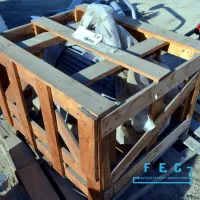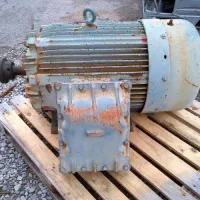Motors are devices that convert electrical energy into mechanical energy. They are widely used in various applications, ranging from household appliances to industrial machinery. The basic principle behind motors is electromagnetic induction, where a magnetic field is generated by passing an electric current through a coil of wire. This magnetic field interacts with other magnetic fields, causing the coil to rotate and produce mechanical motion. There are different types of motors, including DC motors and AC motors. DC motors operate using direct current, while AC motors operate using alternating current. DC motors are commonly used in applications that require precise control of speed and torque, such as robotics and electric vehicles. AC motors, on the other hand, are more commonly used in household appliances and industrial machinery due to their simplicity and reliability. Motors have various components, including a rotor (the rotating part) and a stator (the stationary part). The rotor is usually made of a permanent magnet or electromagnets, while the stator consists of coils of wire that generate the magnetic field. The interaction between the rotor and stator magnetic fields creates a force that causes the rotor to rotate. Motors have certain limitations, such as efficiency and power limitations. Efficiency refers to the ability of a motor to convert electrical energy into mechanical energy without significant losses. Motors can have different efficiency levels depending on their design and operating conditions. Power limitations refer to the maximum power output a motor can provide. This is determined by factors such as the motor's size, cooling capabilities, and the electrical current it can handle. In conclusion, motors are electrical devices that convert electrical energy into mechanical energy through electromagnetic induction. They are essential in various applications and come in different types, such as DC and AC motors. Motors have certain limitations, including efficiency and power limitations, which need to be considered when selecting and using them in different applications.
motors / electrical Manufacturers

Westinghouse
Westinghouse is a renowned company specializing in the manufacturing of motors and electrical equipm
toshiba
Toshiba Corporation is a renowned multinational conglomerate that specializes in various industries,
Filter
Main Categories
Categories
Sub Categories
Year of Construction
Manufacturers
Models
Locations
Serial number
Sort field

TECO Westinghouse VFD Controller, 50 HP
Unused TECO Westinghouse Premium Efficiency Inverter Duty Motor, Type AEHH8N, Catalog# EP0504. Certified for hazardous locations. 50hp, 3/60/230/460 volt, 1770 rpm. Frame size 326T, TEFC enclosure.
Westinghouse - AEHH8N
100 HP Toshiba B1002YLG3AM Hazardous Location Motor
Used Toshiba Hazardous Location Motor Model B1002YLG3AM 100 HP, TEFC, 230/460 Volt, 3600 RPM, 405TS Frame. Class 1 Group D, Class 2 Group E F G, T3B Temperature.
Toshiba - B1002YLG3AM
